Keywords: Black Lives Matter
-
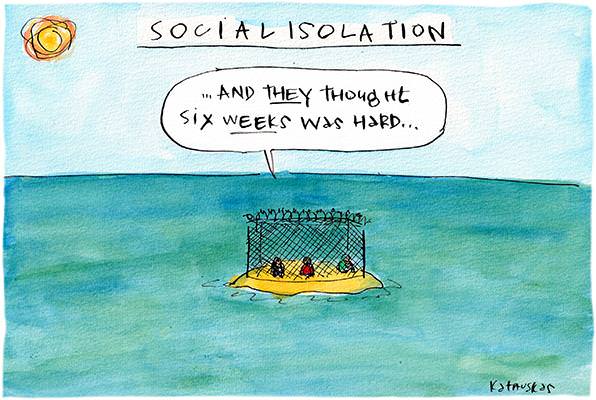
INTERNATIONAL
- Andrew Hamilton
- 11 June 2020
10 Comments
This year Refugee Week has been swallowed by the disruption caused by COVID-19, and by the fracturing of society in the United States. In a world where people naturally turn inwards, those who seek protection from persecution receive little public attention or sympathy. It becomes all the more important to reflect on the world of which refugees are part and why their lives matter to us.
READ MORE 
-
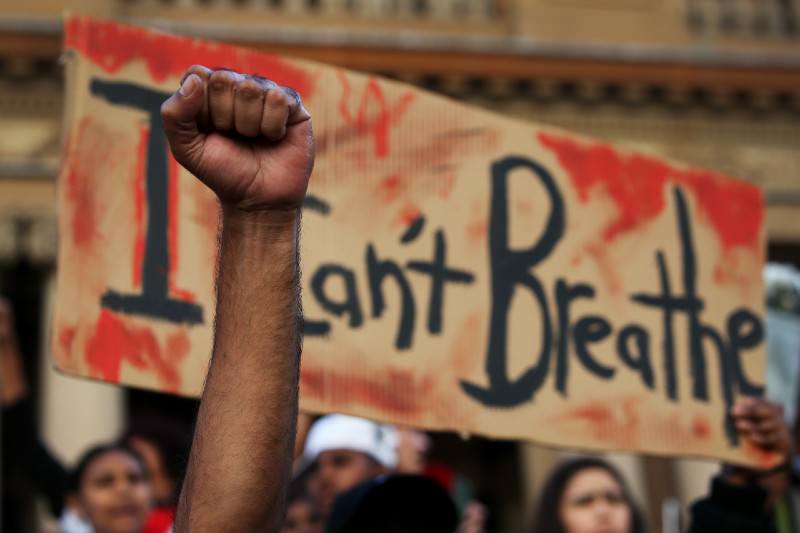
AUSTRALIA
- Kate Galloway
- 11 June 2020
57 Comments
If our governments fail to roll out frameworks of good governance when times are good, they cannot expect to have the trust of the people during a crisis. So long as Australia fails to enter into proper legal relations with Aboriginal and Torres Strait Islander peoples, we will see protests, and ‘agitators’ will continue to call for justice.
READ MORE 
-
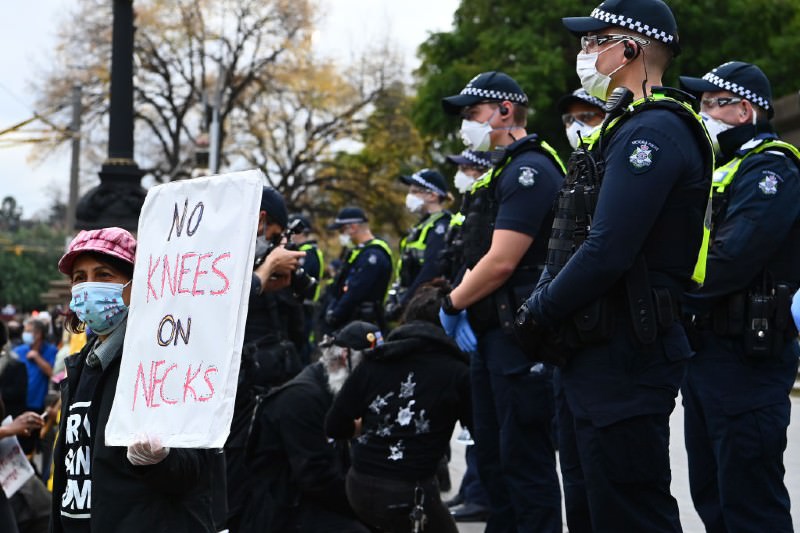
AUSTRALIA
- Cristy Clark
- 09 June 2020
16 Comments
We must ask: are our police forces keeping us safe? All of us? Poverty, discrimination and disempowerment cannot be solved with more policing. What if we took the money that is currently spent on policing and spent it on supporting the community?
READ MORE 
-
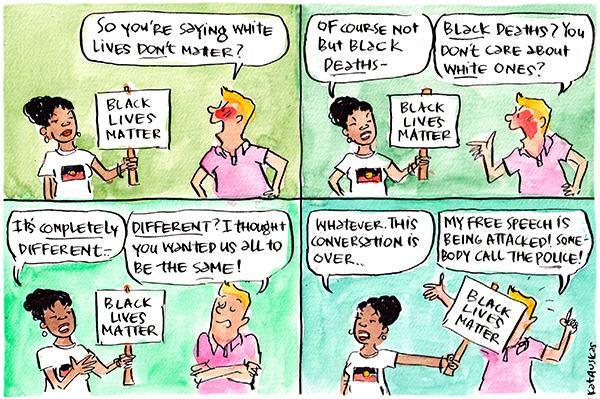
CARTOON
- Fiona Katauskas
- 09 June 2020
2 Comments
READ MORE 
-
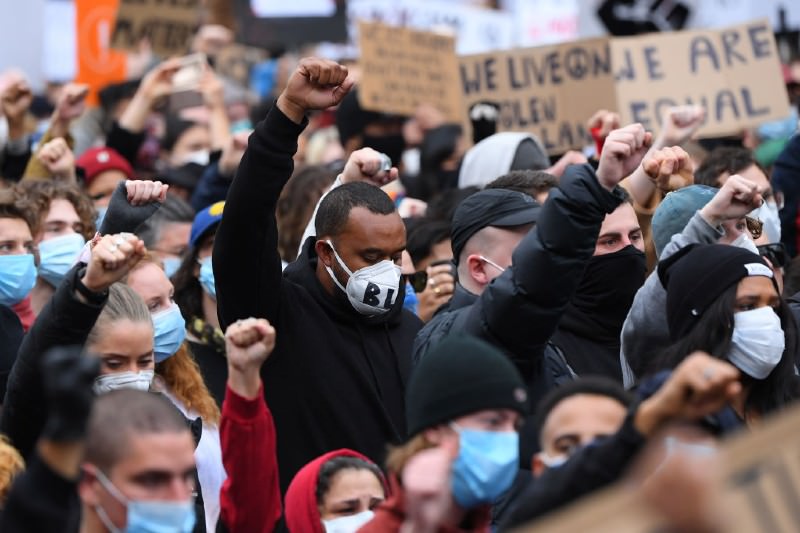
AUSTRALIA
- Sherry Balcombe
- 09 June 2020
25 Comments
The streets were packed there were thousands of people there to march in solidarity with us. It was so incredibly heartening. Australia is growing. The only time I have felt this atmosphere was in Sydney in the 1988 march on Australia Day. But this time was different very different it was predominately young people under the age of 30. They get it, they do see it.
READ MORE 
-
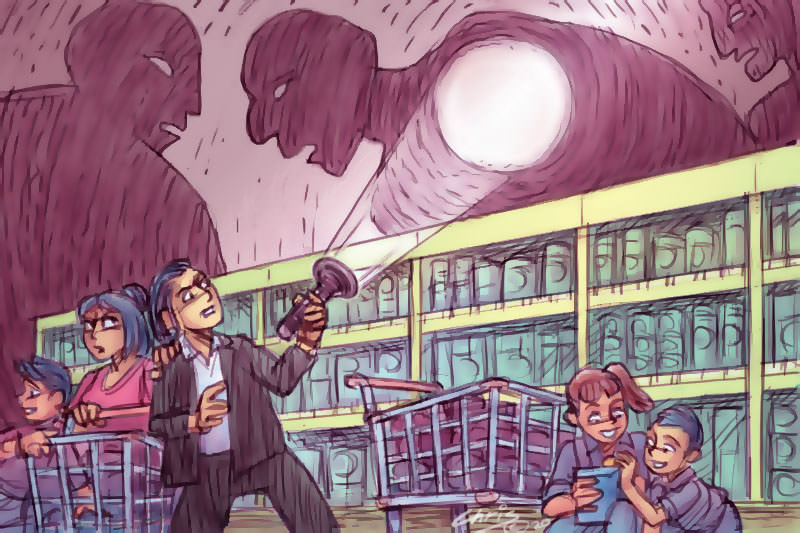
AUSTRALIA
At the fringes of the legal system, there are areas of work you probably won’t read about in law school career guides. Many of these deal in trauma or poverty. They are substantial, but they aren’t celebrated or pursued by the mainstream of the profession. They generally attract neither money nor prestige, and in many cases the ‘market’ fails to provide paid jobs of any sort, irrespective of need.
READ MORE 
-

ARTS AND CULTURE
- Jennifer Zeven
- 22 May 2020
13 Comments
I spent the first six or seven years of my life spellbound by my mum’s stories of her childhood in Far North Queensland. Herstory came from warm, outback and subtropical places. She and her sisters wrote on slates at school, played in custard apple trees, kept their own bees.
READ MORE 
-

AUSTRALIA
- Andrew Hamilton
- 14 May 2020
9 Comments
This period of social distancing and restriction has been called many things, some of them printable. One of the most common has been a time of uncertainty. Uncertainty, however, is not an impediment to life which can be removed by clear and authoritative statements of dates to remove restrictions and get back to work.
READ MORE 
-

AUSTRALIA
- Kate Galloway
- 13 May 2020
2 Comments
Over the weekend in most Australian states, rules requiring people to stay home were relaxed somewhat. The country has commenced its easing of the significant restrictions on venturing out in public. As we begin to reacquaint ourselves with life outside, it is useful to reflect on the new resonance of ‘home’ — but also on its inherent limits.
READ MORE 
-
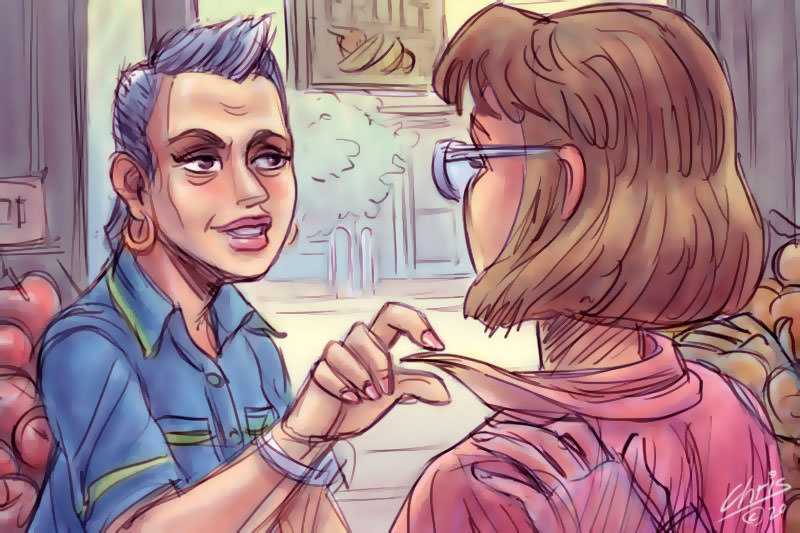
ARTS AND CULTURE
In the week following my mother’s funeral I wake up knowing I need to begin cooking again. I need to enter the world beyond my door. It takes me until lunchtime to coax myself out from under the doona. I will walk up to the local shops for bread and vegetables.
READ MORE 
-

RELIGION
Another biblical motif or metaphor may prove more fruitful in the long run: the apocalypse. No, not the end of the world, however appropriate this may feel. It’s the apocalypse but not as we know it.
READ MORE 
-
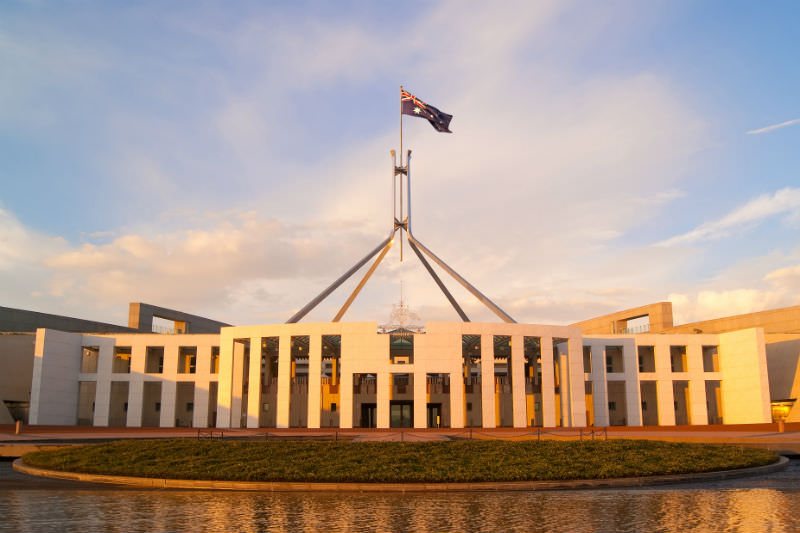
AUSTRALIA
- Justin Glyn
- 20 April 2020
7 Comments
The question remains, however, is there a straight binary trade-off between granting the state power (to organise lock-downs, track its populace and coerce the people) and keeping its people safe?
READ MORE 